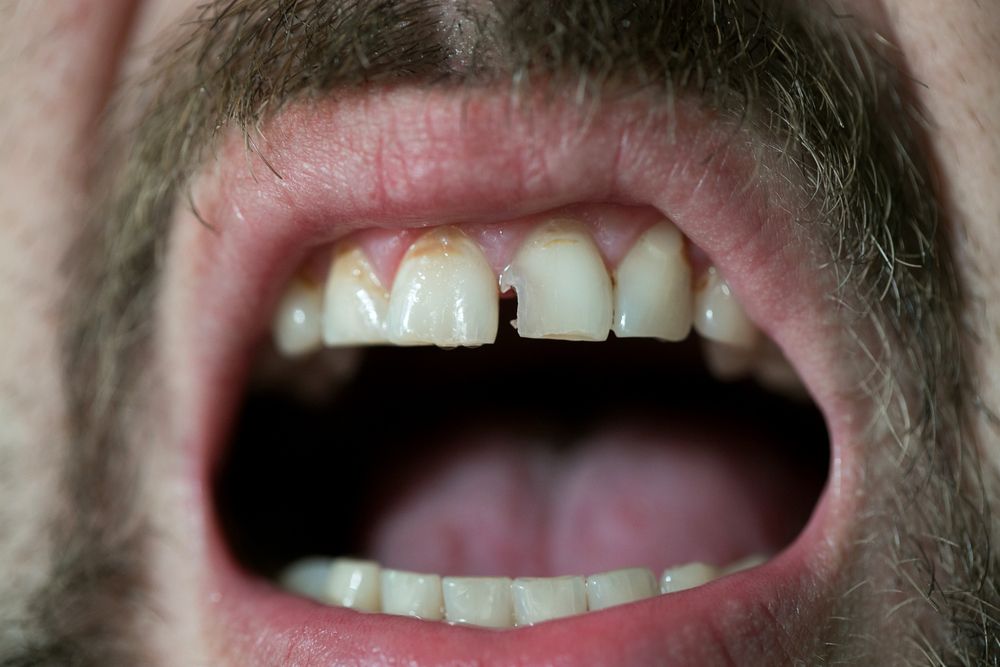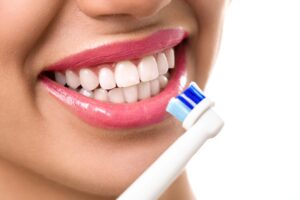
A chipped tooth can be a painful and unsettling experience. Whether it’s caused by biting down on a hard object, a sports injury, or general wear and tear, a chipped tooth can lead to discomfort, sensitivity, and even more serious oral health issues if left untreated. Understanding the causes, symptoms, and impact of a chipped tooth is the first step in determining when to seek professional dental care.
Chipped teeth can range in severity from a small crack or chip to a more significant break in the tooth structure. The pain associated with a chipped tooth can vary depending on the extent of the damage, the location of the chip, and whether the inner layers of the tooth have been exposed. In some cases, a chipped tooth may not cause any immediate discomfort, while in others, the pain can be severe and persistent.
Common Causes of Chipped Teeth
Chipped teeth can occur for a variety of reasons, including:
- Biting down on hard foods or objects
- Trauma or injury to the face or mouth, such as during a sports activity or accident
- Grinding or clenching the teeth (bruxism)
- Weakened tooth structure due to decay or previous dental work
- Enamel erosion from acidic foods and beverages
Regardless of the cause, it’s important to address a chipped tooth promptly to prevent further damage and potential complications.
Recognizing the Symptoms of a Chipped Tooth
The symptoms of a chipped tooth can vary, but some common signs to look out for include:
- Sudden, sharp pain when biting or chewing
- Sensitivity to hot, cold, or sweet foods and beverages
- Visible crack or chip in the tooth
- Rough or uneven surface on the tooth
- Bleeding or swelling around the affected tooth
If you experience any of these symptoms, it’s important to schedule a dental appointment as soon as possible to have the issue evaluated and treated.
The Impact of a Chipped Tooth on Oral Health
A chipped tooth can have a significant impact on your overall oral health. The exposed area of the tooth can become more susceptible to decay and infection, as the protective enamel layer has been compromised. This can lead to further damage to the tooth, as well as the potential for the development of more serious conditions, such as:
- Tooth abscess
- Gum disease
- Tooth loss
Additionally, a chipped tooth can affect your ability to chew and speak comfortably, and it may also impact the aesthetics of your smile.
When to Seek Dental Treatment for a Chipped Tooth
It’s generally recommended to seek dental treatment as soon as possible after a tooth has been chipped. Even if the pain is minimal or the chip appears minor, it’s important to have a professional evaluation to assess the extent of the damage and determine the appropriate course of treatment. Some key signs that it’s time to see a dentist for a chipped tooth include:
- Persistent or severe pain
- Sensitivity to hot, cold, or pressure
- Visible crack or chip in the tooth
- Bleeding or swelling around the affected tooth
- Difficulty chewing or biting
Ignoring a chipped tooth can lead to more serious complications, so it’s always better to err on the side of caution and schedule an appointment with your dentist.
Treatment Options for a Chipped Tooth
The specific treatment for a chipped tooth will depend on the severity of the damage and the location of the chip. Some common treatment options include:
- Dental Bonding: For minor chips or cracks, your dentist may be able to repair the tooth using a tooth-colored composite resin material. This process involves roughening the surface of the tooth, applying a bonding agent, and then shaping and polishing the resin to restore the tooth’s appearance and function.
- Dental Veneers: For more significant chips or cracks, your dentist may recommend the placement of a dental veneer. This thin, custom-made shell is bonded to the front of the tooth to cover the imperfection and improve the overall appearance of your smile.
- Dental Crowns: If the chip or crack extends deeper into the tooth structure, a dental crown may be necessary. This involves capping the entire visible portion of the tooth with a custom-made restoration, providing a stronger and more durable solution.
- Root Canal Treatment: In cases where the chip has exposed the inner layers of the tooth, including the pulp (the soft, inner core of the tooth), a root canal may be required to remove the damaged or infected pulp and prevent further complications.
- Tooth Extraction: If the damage to the tooth is too severe and cannot be repaired, your dentist may recommend extracting the tooth and replacing it with a dental implant or other tooth replacement option.
Your dentist will work with you to determine the most appropriate treatment based on the extent of the damage and your individual oral health needs.
Schedule a Consultation with Allen & Washington Dental Office Today
A chipped tooth can be a painful and concerning experience, but it’s important to remember that there are effective treatment options available. By understanding the causes, symptoms, and impact of a chipped tooth, you can make an informed decision about when to seek dental care and take the necessary steps to protect your oral health.
If you’re experiencing the symptoms of a chipped tooth, contact Allen & Washington Dental Office for a consultation and get the care you need to restore your smile and prevent further complications. Visit our office in Pasadena, California, or call (626) 699-9770 to book an appointment today.




